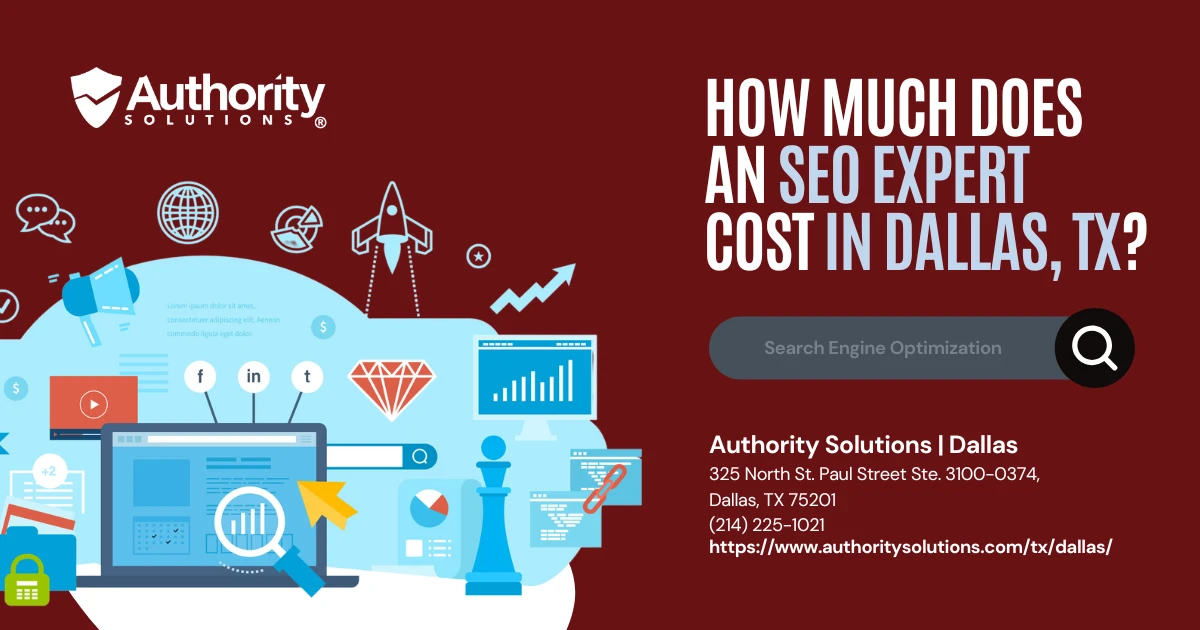Conquering The E-Commerce World: Internet Marketing Services For Online Retail
Are you ready to conquer the e-commerce world? As an online retailer, your success is largely determined by your ability to market effectively on the internet. The good news is that there are a multitude of internet marketing services available to help you reach your target audience and increase sales.
Search Engine Optimization (SEO) is one such service that can help improve your website's visibility in search engine results pages. By optimizing your website's content for relevant keywords and building high-quality backlinks, you can attract more organic traffic to your site. Pay-per-Click (PPC) advertising is another effective way to drive targeted traffic to your online store. With PPC, you only pay when someone clicks on your ad, making it a cost-effective option for businesses of all sizes. These are just a couple of examples of the many internet marketing services available to help you achieve e-commerce success.
Search Engine Optimization (SEO)
SEO is a crucial aspect of any e-commerce strategy, as it can greatly enhance a website's visibility and ultimately drive more traffic to the online store. It involves optimizing your website's content and structure to rank higher in search engine results pages (SERPs). By doing so, potential customers are more likely to find your site when searching for products or services related to your business.
There are various factors that go into effective SEO, including using relevant keywords throughout your site's content, creating high-quality backlinks from reputable sources, and ensuring that your website is mobile-friendly. Additionally, regularly updating your website with fresh content can also improve its ranking on search engines.
Implementing an SEO strategy requires ongoing effort and monitoring to see results. However, investing in SEO can pay off in the long run by attracting organic traffic to your site without having to constantly spend money on advertising. Speaking of advertising, let's take a look at another important aspect of e-commerce marketing: pay-per-click (PPC) advertising.
Transition: While SEO focuses on improving organic traffic through search engine rankings, PPC advertising involves paying for clicks on ads that appear in search engine result pages or other websites.
Get found online with Authority Solutions®' SEO.
Pay-per-Click (PPC) Advertising
With PPC advertising, you can target specific keywords and demographics to drive traffic to your website. It allows you to create ads that appear on search engine results pages or on other websites related to your products or services. You only pay for the ad when someone clicks on it, making it a cost-effective way of driving traffic to your site.
One advantage of PPC advertising is that it provides almost immediate results. Once you've set up a campaign and launched your ads, they start appearing in search results almost immediately. This means you can start driving traffic to your site right away and see the impact of your campaign within hours or days.
However, creating an effective PPC campaign requires careful planning and management. You need to identify the right keywords that are relevant to your business and have high search volumes but low competition. You also need to craft compelling ad copy that entices users to click through and make a purchase. And once your campaign is live, you need to constantly monitor and adjust it based on performance metrics such as click-through rates, conversion rates, and cost per acquisition.
Transitioning into email marketing: While PPC advertising can help bring new visitors to your website, email marketing is a powerful tool for nurturing relationships with those visitors and turning them into loyal customers.
Email Marketing
Email marketing is an effective way to build relationships with potential customers and keep them engaged with your brand. By sending targeted emails, you can provide valuable information about your products or services, offer exclusive promotions, and remind customers of their abandoned shopping carts. The key to successful email marketing is to create compelling content that resonates with your target audience.
To get started with email marketing, you will need a list of subscribers who have opted-in to receive emails from your company. You can build this list by offering incentives such as a discount or free resource in exchange for signing up. Once you have a list, segment it based on customer behavior and interests so that you can send personalized messages that are relevant to each subscriber.
In addition to building relationships with existing customers, email marketing can also help attract new ones through referrals and social sharing. By including social media buttons in your emails and encouraging recipients to share your content with their networks, you can expand the reach of your message beyond just those on your subscription list. This leads us into the next topic: social media marketing.
Social Media Marketing
Now let's dive into how you can use social media marketing to connect with your audience and grow your brand presence online. Social media is a powerful tool that allows you to engage with your customers, showcase your products, and build relationships with your followers. With over 3.5 billion active users on social media platforms like Facebook, Instagram, Twitter, and LinkedIn, it's clear that having a strong social media strategy is essential for any e-commerce business.
To get started with social media marketing, you first need to determine which platforms are most relevant to your target audience. Once you've identified the right channels, it's time to start creating content that resonates with your followers. This could include anything from product photos and videos to blog posts and customer testimonials. The key is to provide value in every post so that people will want to follow you and engage with your content.
In addition to creating great content, it's also important to engage with your followers regularly. Responding promptly to comments and messages shows that you care about their opinions and are invested in building meaningful relationships with them. By using social media as a way of opening up two-way communication between yourself and your customers, you'll be able to gain valuable insights into their needs and preferences – insights that can help inform future marketing efforts.
Social media marketing is just one piece of the puzzle when it comes to conquering the e-commerce world. In the next section, we'll explore how content marketing can help drive traffic to your website and boost sales even further!
Content Marketing
To maximize the results of your online marketing efforts, you need to invest in content marketing. Creating valuable content that provides relevant information for your target audience is crucial in building trust and establishing authority. To ensure your content reaches a wider audience, optimize it for search engines by using targeted keywords and meta descriptions. Finally, promote and share your content on social media platforms to increase visibility and engagement with potential customers. By following these key points, you can effectively leverage content marketing to drive traffic and boost conversions for your online retail business.
Create Valuable Content
You can easily engage your online audience by creating valuable content that speaks directly to their needs and interests. Here are some tips on how to do it:
- Know your audience: Understanding your target market is crucial in creating content that resonates with them. Take time to research their demographics, interests, and pain points.
- Provide actionable solutions: Your content should provide practical solutions or advice that your audience can apply in their lives or businesses.
- Use storytelling: Stories are powerful tools for capturing attention and making a lasting impression on readers. Incorporate relevant stories into your content to make it more relatable and memorable.
- Be consistent: Consistency is key in building a loyal following for your brand. Create a publishing schedule and stick to it, whether it's daily, weekly, or monthly.
Creating valuable content is just the first step in conquering the e-commerce world through internet marketing services for online retail. The next step is optimizing your content for search engines to ensure maximum visibility online.
Optimize for Search Engines
Maximizing the visibility of your valuable content online requires optimizing it for search engines, which involves understanding how search algorithms work and strategically incorporating keywords into your content. Search engine optimization (SEO) is an essential part of internet marketing services for online retail because it helps potential customers find your website through organic search results. By using relevant keywords in your product descriptions, blog posts, and other website content, you can improve your chances of ranking higher on search engine results pages (SERPs).
One way to optimize your content for SEO is by conducting keyword research to determine what terms people are searching for when looking for products similar to yours. This will help you identify high-volume keywords that you can incorporate naturally into your website copy without overusing them or stuffing them unnaturally. By doing so, you can increase the relevance and authority of your website in the eyes of search engines like Google and Bing, which can ultimately lead to more traffic and sales. With optimized content, you'll be able to attract more potential customers who are actively searching for products like yours online.
As a result of optimizing your e-commerce site's content with relevant keywords, the next step is promoting and sharing that same valuable content through social media platforms such as Facebook or Twitter. These platforms offer excellent opportunities to engage with potential customers in real-time while also building brand awareness among target audiences.
Promote and Share Content on Social Media
Boost your social media presence by promoting and sharing your valuable e-commerce content on popular platforms like Facebook and Twitter. Social media is a great way to connect with potential customers, build brand awareness, and increase sales. Here are four tips for promoting and sharing your e-commerce content on social media:
- Share visually appealing images: Use high-quality images that showcase your products in the best possible light. This will help grab the attention of users scrolling through their feeds.
- Encourage engagement: Ask questions or start conversations with your followers to encourage them to engage with your content. The more engagement you receive, the higher your reach will be.
- Utilize hashtags: Use relevant hashtags to increase visibility of your posts outside of just your followers.
- Post consistently: Posting regularly helps keep you top of mind for potential customers while also keeping current customers engaged with new products or promotions.
Frequently Asked Questions
What are the common mistakes to avoid when implementing an email marketing campaign for my online retail business?
To avoid common mistakes in email marketing for your online retail business, ensure that emails are personalized, relevant, and valuable. Avoid spamming or sending too frequently. Use catchy subject lines and clear calls to action.
How can I measure the success of my social media marketing efforts for my e-commerce website?
To measure social media marketing success, track engagement metrics like likes, shares, comments and follower growth. Analyze website traffic from social posts & sales revenue generated. Use tools like Google Analytics to quantify ROI.
Are there any specific guidelines to follow when creating content for my e-commerce website to improve my search engine ranking?
To improve your search engine ranking, focus on creating high-quality content that is relevant to your target audience. Use keywords strategically and ensure your website is optimized for both desktop and mobile devices. Regularly update your content to keep it fresh and engaging.
Can PPC advertising help me generate leads for my online retail business, or is it only effective for generating sales?
Yes, PPC advertising can generate leads for your online retail business. By targeting specific keywords and demographics, you can attract potential customers to your website and entice them with compelling offers or content.
How can I ensure that my internet marketing efforts are targeting the right audience for my e-commerce business?
To ensure you target the right audience for your e-commerce business, define your ideal customer and tailor marketing efforts accordingly. Utilize data analytics to track and adjust campaigns, and test messaging to optimize engagement.
Conclusion
Congratulations on taking steps to conquer the e-commerce world with internet marketing services for your online retail business. By utilizing techniques such as Search Engine Optimization (SEO), Pay-per-Click (PPC) Advertising, Email Marketing, Social Media Marketing, and Content Marketing, you can effectively reach your target audience and drive sales.
With SEO, you can increase your website's visibility on search engines and attract organic traffic. PPC advertising allows you to bid on keywords relevant to your products or services and only pay when someone clicks on your ad. Email marketing is a cost-effective way to communicate with customers directly and promote new products or offers. Social media marketing enables you to engage with potential customers and build a loyal following. Finally, content marketing allows you to create valuable material that attracts leads and builds brand awareness.
By incorporating these internet marketing services into your e-commerce strategy, you can establish a strong online presence and achieve success in the competitive world of online retail. Remember to stay up-to-date with the latest trends in digital marketing in order to stay ahead of the curve and continue growing your business for years to come.







